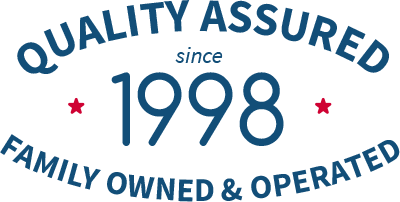If you are concerned as a homeowner about the health quality of your indoor air, one of the best options available to you is the installation of mechanical air filters. These filters trap pollutants moving through your HVAC system. If professionally chosen and installed, an air filter can eliminate more than 99% of the irritants in the air, resulting in a much healthier indoors.
The rating scale used to determine the effectiveness of an air filter is MERV. This acronym stands for “minimum efficiency reporting value,” and it’s the rating that professionals will use to decide what sort of filter will work best for your home’s needs.
What MERV means for your air filtration installation
The American Society of Heating, Refrigerant and Air Conditioning Engineers (ASHRAE) designed the MERV scale to measure how small a particle a filter can stop. The lowest ratings on the scale (1–4) will only stop particles 10 microns in size of large, such as insect debris, carpet and textile fibers. The highest ratings (17–20) can trap viruses and sea salt and other particles under 0.3 microns.
But you cannot simply pick the highest MERV rating available. The more effective a filter is at stopping pollutants, the more resistance it will put up against airflow. This will result in a HVAC system with severe strain on it. For example, a HEPA filter (MERV 16 and above) is suited for a hospital or industrial usage, but will choke the airflow of most residential air conditioners and heaters.
To find the right MERV rating to match your home—counteracting pollutants without putting stress on the AC—make sure you always work with indoor air quality professionals. They will not only see that you have the right type of filter, but they will also see if your home needs extra protection from an electronic air purifier.
Call OASIS Heating, A/C & Refrigeration, Inc. in Arlington, VA to schedule installation of an air filtration system in your home.


![([site_name)]](/assets/templates/main/images/footer-logo.png)



